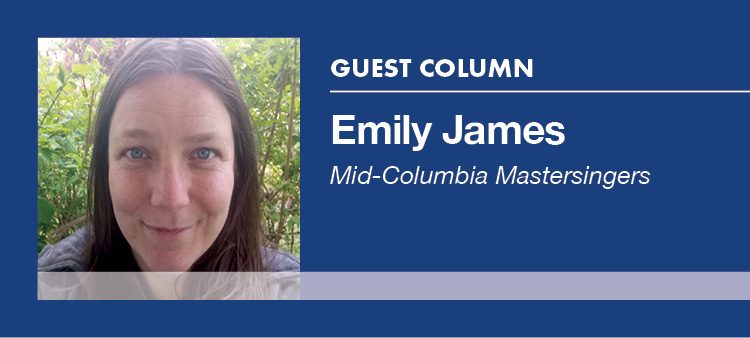
Home » Together in harmony: Developing young voices
Together in harmony: Developing young voices

June 15, 2020
How do we, as a society, know that our next generation will be capable of solving the global problems left behind for them to handle?
How do we ensure that our future leaders will be able to think independently and multidimensionally, with compassion and confidence?
How can we prepare them to face obstacles with the vision of a world better than the one they see before them?
While the answer is indeed incredibly complex, there has long been a common belief among many cultures: that in the process of learning to express ourselves artistically, we acquire skills that will serve us throughout our lives.
The case for an arts education
For our children and grandchildren to find the balance they need to succeed in the world we leave for them, we must provide them with a strong education in the arts.
“The purpose of arts education is not to produce more artists, though that is a byproduct. The real purpose of arts education is to create complete human beings who are capable of leading successful and productive lives in a free society.”
These are the words of Dana Gioia, American poet and former chair of the National Endowment for the Arts.
There are few activities that offer humans the joy, compassion, cognitive training, togetherness, communication and enrichment so completely as singing in choir. Cognitive studies have shown that when people sing, they experience cranial activity in several areas simultaneously, connecting the hemispheres of the brain through neuropathways.
Singing with others creates community. It builds bridges between people from disparate cultures, generations and social statuses. Anyone who sings knows that it decreases stress, anxiety and depression — for youth, it also statistically increases SAT scores and the likelihood of graduating from high school.
That’s why Mid-Columbia Mastersingers has created a focused choral education program for young people, the Mastersingers Youth Choir.
Affectionately nicknamed “MY Choir,” this program exists to support the future of music in the Tri-Cities. Designed to work side-by-side with school choir programs, MY Choir trains young singers in an educational, creative, social and fun environment.
The first notes of this program were sung in 2014, when a single youth ensemble called the Mid-Columbia Boys’ Choir opened to young boys age 9-13 on the recommendation of local school music teachers.
Four years later, the program expanded to four choirs, serving both boys and girls and broadening the age range to 9-18 years. Young singers join these ensembles for weekly after-school rehearsals, learning songs while expanding their understanding of music theory, vocal technique, balance, artistry, professional concert etiquette and more.
These rehearsals promote education as a primary goal, building upon the curricula that singers are taught in their school choir programs. They also perform in the community, often in collaboration with other artists, and for audiences with limited access to choral programs as much as possible.
In the off-season, the youngest groups are invited to a week-long Choir Summer Camp, designed for singers to explore the joys and challenges of choral singing, and performing the national anthem at a Dust Devils baseball game at the end of the week. No auditions are required for any MY Choir session, everyone is welcome and scholarships are available for those in need.
The voices developed in this program may one day join the ranks of one of the three Mastersingers adult choirs, giving the program a lovely bonus: the cultivation of a “next generation” of choral singers in the Tri-Cities.
But this is not the primary goal of Mastersingers Youth. This after-school music program exists to give kids a place to gather with other lovers of choral singing, and have some fun making beautiful music together.
Arts for academic achievement
The nonprofit advocacy group Americans for the Arts has published statistics indicating that students involved in the arts are four times more likely to be recognized for academic achievement. Students with high arts participation and low socio-economic status have a
4 percent dropout rate — five times lower than their low socio-economic status peers.
Students who take four years of arts and music classes average 100 points higher on their SAT scores than students who take only one-half year or less.
Singing in choir has proven mental health benefits for its participants; studies show that singing in choir creates neurochemical changes in the human brain, decreasing the stress chemical cortisol thus reducing anxiety and depression, and increasing the pleasure and bonding chemical oxytocin.
Our community here in Benton and Franklin counties is rich in the arts. Many programs exist to provide artistic outlets for our youth, both in and out of school.
With these and other academic, physical and social opportunities, we will encourage our young people to grow into robust, competent and empathetic individuals ready to make this world a better place for their own children and grandchildren.
Emily James is Mid-Columbia Mastersingers’ youth choir administrator.
How to help
Mid-Columbia Mastersingers programs, including youth choirs, are silent because of the Covid-19 crisis, which has hurt the nonprofit’s funding. It is participating in The Roaring 20s, A Gatsby Gala, a virtual fundraiser on June 20 organized by Mid-Columbia arts organizations.
Go to mcaf2020.givesmart.com to register and support Mid-Columbia Mastersingers, Mid-Columbia Symphony, Mid-Columbia Musical Theatre and Mid-Columbia Ballet.
The online auction begins June 15.
Local News Arts & Culture
KEYWORDS june 2020





